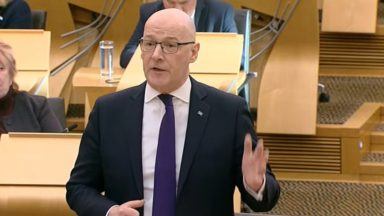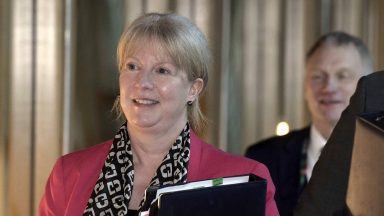It’s a simple question and in many cases not an easy one to answer.
The Scottish Government’s Hate Crime and Public Order (Scotland) Bill is about to find that out as opponents circle what they believe could be an unwitting assault on free speech.
Opinions, both verbal and written, have always had limitations, their scope proscribed by legislation and by the delict of defamation.
The current legislation follows a review by Lord Bracadale and is an attempt to tidy up and make the new law fit for purpose and appropriate for the times in which we live.
In the liberal 1960s and the slightly anarchic 1970s it was almost a mainstream view on the more nationalistic sections of the political Right, that immigrants should be repatriated and that public funds should be made available to encourage this. Would this view, expressed forcefully in 2020, be lawful?
In 1978, as the National Front goose stepped, Margaret Thatcher gave an interview to ITV programme World in Action and talked of Britain being “swamped” by other cultures. Was she ‘stirring up hatred’? The Scottish Government’s proposed law envisages such an offence.
When the Scottish Parliament repealed a law prohibiting councils from ‘promoting homosexuality’ the late Cardinal Winning described same sex relations as “a perversion”. Would that opinion, expressed in 2000, meet the proscriptions of the new Bill?
It will be argued that clerics, whether Evangelical, Catholic, Muslim or whatever have a right to express views central to their religious beliefs.
But should a statement made in the respectable cloak of doing the Lord’s work provide a dispensation that would not be afforded a citizen expressing a similar view who sported a short haircut and a swastika tattooed on his arms?
I could go on with this rhetorical merry-go-round suffice to say that liberal democracies can find the business of balancing free speech with what is hateful and illegal, rather tricky.
At the heart of much of this is drawing a line and assessing behaviour which is merely offensive and deciding when it becomes unlawful.
In a sense the essence of free societies is the competition of ideas which by their nature offend, to varying degrees, those who don’t hold them.
The problem with laws is that they are drafted not in laudible sentiment but in words. And that’s when the problem starts.
On the ground it is left to an individual police officer to interpret whether behaviour is unlawful.
A report to the Procurator Fiscal service will afford a more rigorous legal scrutiny of the alleged transgression.
When prosecution occurs, the lawyers and then the sheriff will have another go at applying legal tests to behaviour.
Churches, the Scottish Police Federation and the Law Society of Scotland among others have expressed varying concerns about the draft Bill. Reading their concerns reminds me of the time when the Offensive Behaviour at Football Bill made its passage through parliament.
That Bill became law only to be repealed as opponents say that it criminalised identities and opinions which, whilst offensive to many, were no more than an expression of free speech.
Indeed, in an interview with a former lord advocate on the operation of this Act, I got a freely volunteered admission from him that holding an Irish republican identity was a crime in certain circumstances.
As MSPs embark on probing these proposals, the echo of the football law should lead to the asking of a number of key questions. Will any new law capture actions and behaviour which the existing law cannot?
Is the law drafted in unambiguous language or is there vagueness which doesn’t change behaviour and cut crime but which gives endless scope for courts to second guess what parliament was trying to do?
Hate crimes are on the rise in Scotland so it is absolutely right that MSPs consider these issues carefully. They are also no back of the fag packet proposals as the pre-legislative thinking came after a careful consideration of the application of existing laws.
The purpose of change should surely be to bring clarity to what is lawful and what is not, to bring certainty and not hard wire ambiguity that anchors court proceedings in tedious debate about what an Act of Parliament means.
A sheriff should not have to ask, ‘is this free speech or a hate crime?’. MSPs make law, judges apply it. If court proceedings focus on what parliamentarians were thinking then any new law will have failed in its most basic function.



























